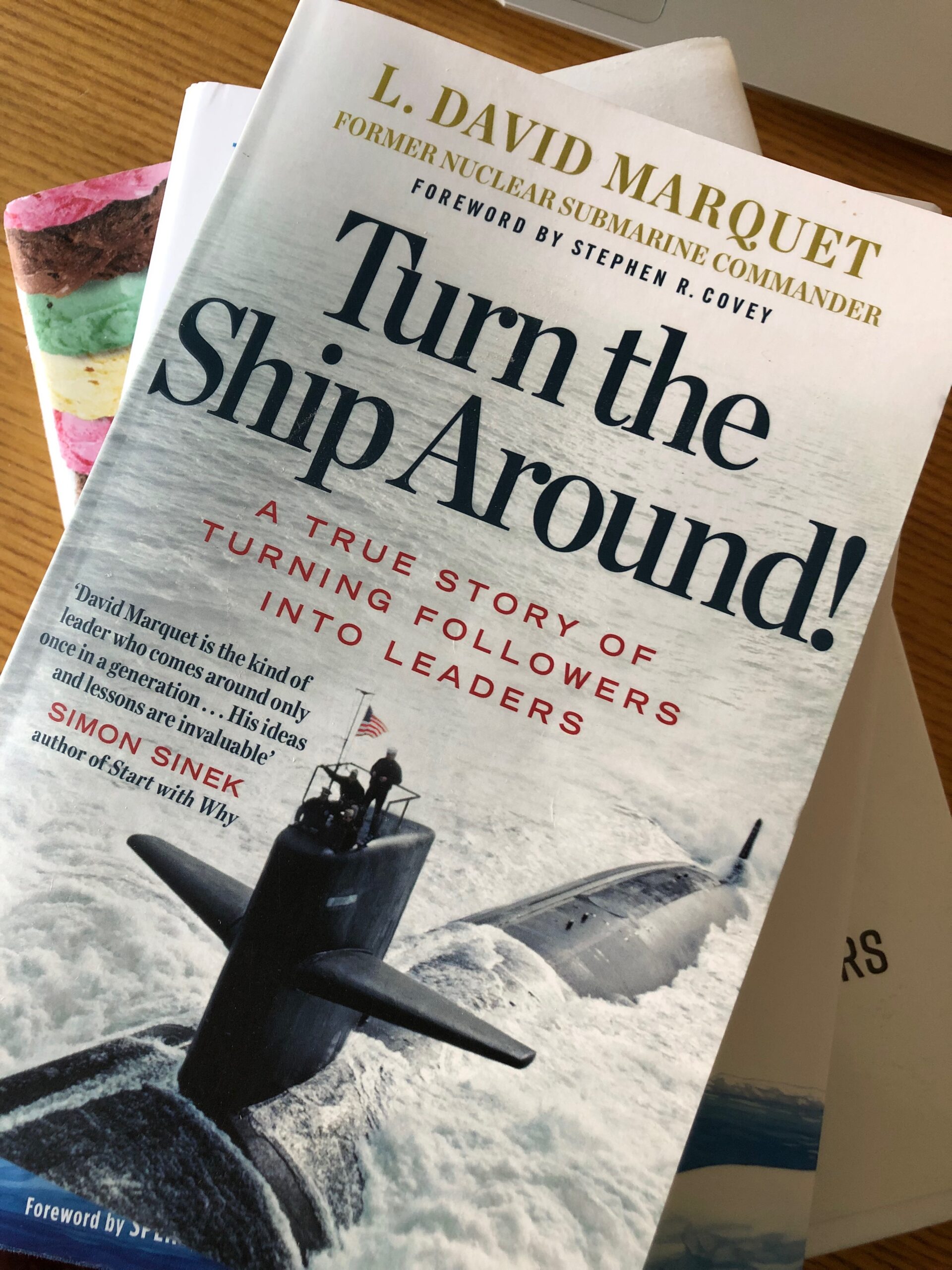Guide to which business book to read next
Turn the Ship Around
L. David Marquet
What is it about?
The author served as a senior officer in the US Navy, specifically in the Submarine fleet. The book is about his experiences of being asked to take over the poorest performing boat in the US fleet. It sets out his exploits in helping the crew work better as a team, work more collaboratively and take on a more empowered approach to their work. This replaced a very top-down and command and control approach where the people doing the actual tasks did not feel responsibility or pride in what they did.
Who should read this book?
If you are finding that you wish that your team members would show more commitment to a successful outturn, feel more empowered to take responsibility for things, more proactive in taking action, then definitely read this book.
It will give you insights into how to empower team members to use their own skills and experience, and most importantly ideas, to achieve a successful outcome. This might apply across any part of your business
- Marketing
- Lead generation
- Sales conversion
- Job fulfilment
- Customer service and management
- Financial control and cost effectiveness
My key learnings
- When trying to implement change, consider working from bottom up
Work with the more junior team members and their immediate team leaders. Get the change started and then cascade the changes upwards to the more senior levels of your organisation - Introduce specific language
In the book, there is a specific challenge which is how to implement a more empowered leadership in an institution (US Navy) which is typically very much a top-down command structure.
Marquet overcame this challenge by introducing specific language. For example, where historically a junior officer would go to his/ her superior and ask for instruction, Marquet encouraged the more junior person to start the conversation with “I intend to take the following action”. If the action made sense to the more senior person, he/ she could simply acknowledge agreement. This empowered the more junior person to work out what he/ she wanted to do and receive endorsement from the senior. The more junior person is then more “invested” in the success of the action and cannot duck responsibility by saying that “he/ she was simply carrying out orders” - When things go wrong, start with understanding why
Things do go wrong – fact. Rather than immediately hunting for the guilty, much better to understand why things went wrong and work on ways to avoid repeat mistakes
Available formats[1]
- Hardback
- Softback
- Kindle
- Audible
[1] Valid at time of writing this review






Your article helped me a lot, is there any more related content? Thanks! https://www.binance.com/bg/register?ref=B4EPR6J0
Thank you for your sharing. I am worried that I lack creative ideas. It is your article that makes me full of hope. Thank you. But, I have a question, can you help me? https://www.binance.info/ru/join?ref=GJY4VW8W
Your article helped me a lot, is there any more related content? Thanks!
Can you be more specific about the content of your article? After reading it, I still have some doubts. Hope you can help me.